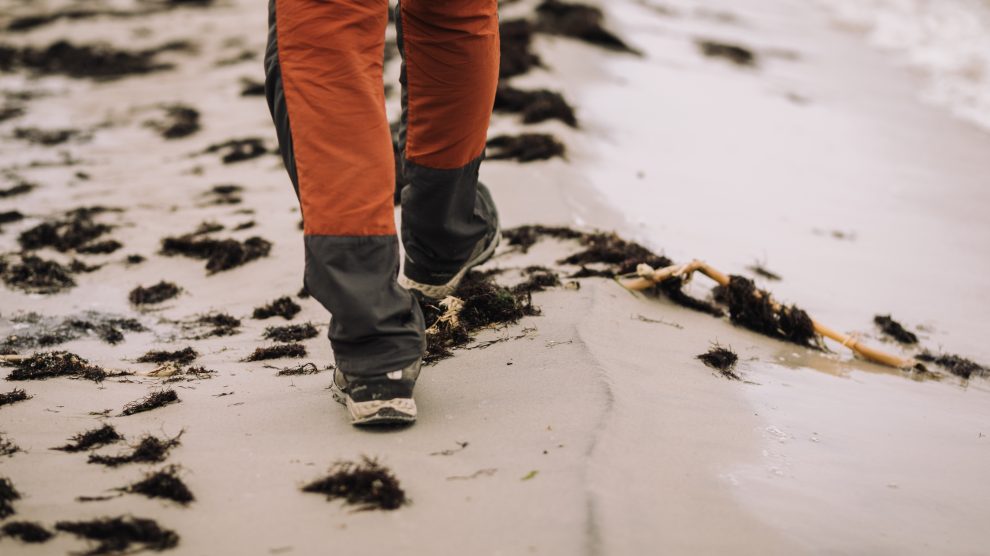The Baltic Sea is under pressure from multiple factors—climate change, intense fishing, as well as pollution that is still difficult to control. A six-month long Lithuanian expedition is hoping to raise public awareness of its precarious state.
The Baltic is one of the five most polluted seas in the world, the result of decades of industrial and agricultural practices that have had a devastating effect on the environment.
Efforts to clean up the Baltic have increased in recent times, through initiatives led by the European Union and many of the sea’s nine coastal countries, aimed at reducing pollution and preventing overfishing.
- The Baltic states: Five essential reads
- In Estonia, Christmas trees are being turned into tonic water
- Six of the best: Baltic beaches
Citizen-led efforts are also a key to raising public awareness about the problems facing the Baltic. One such effort, led by a team from Lithuania, is an expedition set for march dubbed Save the Baltic.
On March 11, a team of scientists, activists, government representatives, and volunteers will embark on a hike around the entirety of the Baltic Sea, covering a total distance of 5,469 kilometres. The expedition is expected to end in November.
During the expedition, there will be educational citizen science events in collaboration with local organisations and scientists. People are invited to join the expedition, for the whole hike, for several sections, or just for a day.
The expedition’s goal is to inform the public about the state of water ecosystems, cultivate a culture of marine conservation, raise awareness about human impact on nature, and introduce ways to halt the decline in marine biodiversity.
“We want the Save the Baltic expedition to bring people closer to the sea,” says expedition leader Giedrius Bučas. “Save the Baltic is serving a unique mission to foster the culture of marine conservation, to educate the public about the impact of human activity on the sea, and to inspire people to adopt more environmentally friendly habits.”
The complex problems in the Baltic Sea
According to marine biologist Laura Stukonytė, scientists have been sounding the alarm about the state of the Baltic Sea and its future for some time now. The limited connection of the Baltic Sea with the ocean leads to extremely slow water renewal, meaning all the pollution that ends up there remains for a long time, gradually poisoning its ecosystems.
“The Baltic Sea is under pressure from multiple factors—climate change, intense fishing, as well as pollution that is still difficult to control,” says Stukonytė. “One of the main problems of the Baltic Sea is eutrophication caused by excess nitrogen and phosphorus, which leads to the formation of huge dead zones where sea life lacks oxygen.”
“Sewage from unsustainable agriculture and inadequately treated factory and household waste water containing environmentally harmful pollutants reaches the sea even from the areas far inland. Aquatic organisms today suffer from reduced oxygen levels caused by eutrophication as well as from pharmaceuticals, pesticides, and microplastic particles that reach the water,” she adds.
The countries of the intergovernmental Helsinki Commission (HELCOM), in collaboration with scientists from Baltic Sea countries, have developed an action plan for the Baltic region. The plan details the actions that countries must commit to in order to significantly improve the condition of the sea.
However, according to data presented by HELCOM in 2022, a large part of the planned actions are still pending. Among them is public education on topics related to sea-friendly behaviour. “The Save the Baltic’ expedition and the campaign surrounding it aim to accelerate these actions,” Bučas says, “to improve the conditions of the sea itself and benefit all of those who find solace and joy in its presence.”
‘Only by coming together can we succeed’
To help finance the project, Save the Baltic recently announced a crowdfunding campaign.
Bučas says the crowdfunding campaign is an opportunity to gauge how much the issue matters to people. “Donating a couple of euros provides a chance to contribute for everyone, especially those unable to dedicate much of their time to conservation efforts,” he says. “The crowdfunding campaign will serve as motivation for the team and as a means of financial support to accomplish the mission’s goals.”
“This expedition is not a business, nor a European Union project, but my personal idea in which I have absolute faith and to which I spare no resources of mine,” says Bučas. “Many people have already put their faith into the project, and now we need even more supporting and trusting individuals willing to invest into the efforts for a cleaner sea. Only by coming together can we succeed.”
Unlike many news and information platforms, Emerging Europe is free to read, and always will be. There is no paywall here. We are independent, not affiliated with nor representing any political party or business organisation. We want the very best for emerging Europe, nothing more, nothing less. Your support will help us continue to spread the word about this amazing region.
You can contribute here. Thank you.







Add Comment